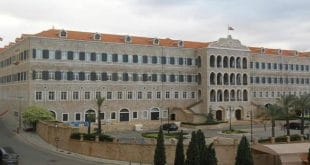### أزمة لبنان الاقتصادية: واقع مرير وتحديات المستقبل
يعيش لبنان منذ عام 2019 في خضم أزمة اقتصادية خانقة تُعتبر الأسوأ في تاريخه الحديث، نتيجة لتداخل عدة عوامل أدت إلى انهيار اقتصادي شامل كاد يجر الدولة إلى حافة الانهيار المالي. بدأت هذه الأزمة بسبب عقود من سوء الإدارة الاقتصادية، والفساد المستشري، وتراكم الديون، بالإضافة إلى تأثير الأحداث الإقليمية والسياسية.
مع تفاقم الأزمة، باتت الأوضاع المعيشية للسكان أكثر صعوبة، حيث تدهورت قيمة العملة الوطنية بشكل حاد، وارتفعت معدلات البطالة والفقر إلى مستويات غير مسبوقة. يُعدّ هذا الانهيار اختباراً حقيقياً لقدرة لبنان على التعافي، في ظل غياب حلول سياسية واقتصادية ملموسة حتى الآن.
#### مستويات الفقر
أدت أزمة انهيار قيمة العملة وفقدان الثقة في النظام المصرفي إلى ارتفاع أسعار السلع الأساسية بشكل كبير، مما جعل الكثير من العائلات غير قادرة على تأمين احتياجاتها اليومية. وفقاً لتقارير الأمم المتحدة والبنك الدولي، يعيش حوالي 80% من السكان تحت خط الفقر، مقارنةً بنسبة تقارب 30% قبل الأزمة.
تسببت الأزمة في ارتفاع حاد في البطالة، حيث لم يعد الكثير من الأفراد، بما في ذلك خريجو الجامعات، قادرين على العثور على وظائف.
#### الصحة النفسية
كان للأزمة الاقتصادية تأثير مدمر على الصحة النفسية للبنانيين. أصبح القلق والاكتئاب والتوتر شائعة بين جميع شرائح المجتمع. فقدان الوظائف، نقص الأموال، وعدم القدرة على تلبية الاحتياجات اليومية زادت من مشاعر الإحباط واليأس، خصوصاً لدى الشباب الذين يطمحون لبناء مستقبل مشرق. أظهرت دراسات محلية زيادة في عدد الأشخاص الذين يلجأون إلى المراكز الطبية طلباً للدعم النفسي، ولكن تعاني هذه الخدمات، مثل العديد من الخدمات الأخرى، من نقص في التمويل والموارد.
#### الوصول إلى الخدمات الأساسية
تدهورت إمكانيات الوصول إلى الخدمات الأساسية بشكل كبير، ما جعل حياة الكثيرين أكثر صعوبة. حيث أن القطاعات العامة، التي كانت تعاني أصلاً من ضعف البنية التحتية والفساد، ازدادت تدهوراً بفعل الأزمة المالية، ومن بينها:
– **إمدادات المياه:** تدهورت بسبب عدم قدرة الدولة على تمويل البنية التحتية. يعتمد الكثير من المواطنين على شراء المياه من القطاع الخاص، الذي أصبح مكلفاً للغاية.
– **الكهرباء:** انقطاع التيار الكهربائي يتجاوز 20 ساعة يومياً في بعض المناطق، مما أثر سلباً على الحياة اليومية والنشاط الاقتصادي.
– **التعليم:** الكثير من الأهالي لا يستطيعون دفع الرسوم الدراسية، مما أدى إلى إغلاق بعض المؤسسات التعليمية أو تقليص أنشطتها.
– **الصحة:** تعاني المستشفيات من نقص حاد في الأدوية والمستلزمات الطبية، مما أدى إلى صعوبة تقديم الرعاية الأساسية للمرضى.
#### الخاتمة
أثرت الأزمة الاقتصادية في لبنان بعمق على جميع جوانب الحياة، من ارتفاع معدلات الفقر إلى تدهور الصحة النفسية وانهيار الخدمات الأساسية. في ظل استمرار الأزمة، يحتاج لبنان إلى دعم كبير من المجتمع الدولي لإعادة بناء اقتصاده وتحقيق استقرار اجتماعي يمكّن الأفراد من العيش بكرامة.
حل الأزمة الاقتصادية يتطلب اتخاذ خطوات جذرية تشمل إصلاحات اقتصادية وسياسية متكاملة، مع التركيز على الشفافية ومكافحة الفساد. يتعين تعزيز الثقة في مؤسسات الدولة وتفعيل سياسات تحفيز النمو الاقتصادي المستدام. كما يتطلب الأمر دعماً دولياً، مع وضع خطط تنموية تعزز الإنتاج المحلي وتقلل الاعتماد على الواردات.
المصدر: ماريبال طعوم – الجمهورية
### Economic Crisis in Lebanon: A Harsh Reality and Future Challenges
Since 2019, Lebanon has been grappling with a severe economic crisis considered the worst in its modern history, caused by a combination of factors leading to a complete economic collapse that has brought the state to the brink of financial ruin. This crisis stemmed from decades of mismanagement, rampant corruption, and escalating debt, along with the influence of regional and political events.
As the crisis worsened, the living conditions for residents became increasingly difficult. The national currency's value plummeted sharply, and unemployment and poverty rates soared to unprecedented levels. This collapse is a true test of Lebanon's ability to recover, amid the absence of tangible political and economic solutions.
#### Poverty Levels
The collapse of the national currency and loss of trust in the banking system led to a significant rise in the prices of basic goods, making it impossible for many families to secure their daily needs. According to reports from the United Nations and the World Bank, around 80% of the population now lives below the poverty line, compared to approximately 30% before the crisis.
The crisis has caused a sharp rise in unemployment, leaving many individuals, including university graduates, unable to find jobs.
#### Mental Health
The economic crisis has had a devastating impact on the mental health of the Lebanese population. Anxiety, depression, and stress have become commonplace across all segments of society. Job losses, financial shortages, and the inability to meet daily needs have intensified feelings of frustration and despair, especially among the youth aspiring to build a bright future. Local studies have shown an increase in the number of individuals seeking psychological support, but these services, like many others, suffer from a lack of funding and resources.
#### Access to Basic Services
The economic crisis in Lebanon has severely deteriorated access to basic services, complicating life for many. Public service sectors, already struggling with weak infrastructure and corruption, have further declined due to the financial crisis, including:
– **Water Supply:** Deteriorated due to the state's inability to fund infrastructure, forcing many citizens to purchase water from the private sector, which has become exorbitantly expensive.
– **Electricity:** Power cuts exceed 20 hours a day in some areas, negatively impacting daily life and economic activity.
– **Education:** Many parents cannot afford tuition fees, leading to the closure or reduction of activities at some educational institutions.
– **Healthcare:** Hospitals are facing severe shortages of medications and medical supplies, making it difficult to provide basic care for patients.
#### Conclusion
The economic crisis in Lebanon has deeply affected all aspects of life, from rising poverty rates to deteriorating mental health and collapsing basic services. As the crisis continues, Lebanon needs substantial support from the international community to rebuild its economy and achieve social stability that enables individuals to live with dignity.
Resolving the economic crisis requires bold steps, including comprehensive economic and political reforms focused on transparency and anti-corruption measures. It is essential to rebuild trust in state institutions and activate policies that promote sustainable economic growth. International support is also crucial, along with developing plans that enhance local production and reduce reliance on imports.
translated by economyscopes team
 سكوبات عالمية إقتصادية – EconomyScopes إجعل موقعنا خيارك ومصدرك الأنسب للأخبار الإقتصادية المحلية والعربية والعالمية على أنواعها بالإضافة الى نشر مجموعة لا بأس بها من فرص العمل في لبنان والشرق الأوسط والعالم
سكوبات عالمية إقتصادية – EconomyScopes إجعل موقعنا خيارك ومصدرك الأنسب للأخبار الإقتصادية المحلية والعربية والعالمية على أنواعها بالإضافة الى نشر مجموعة لا بأس بها من فرص العمل في لبنان والشرق الأوسط والعالم




